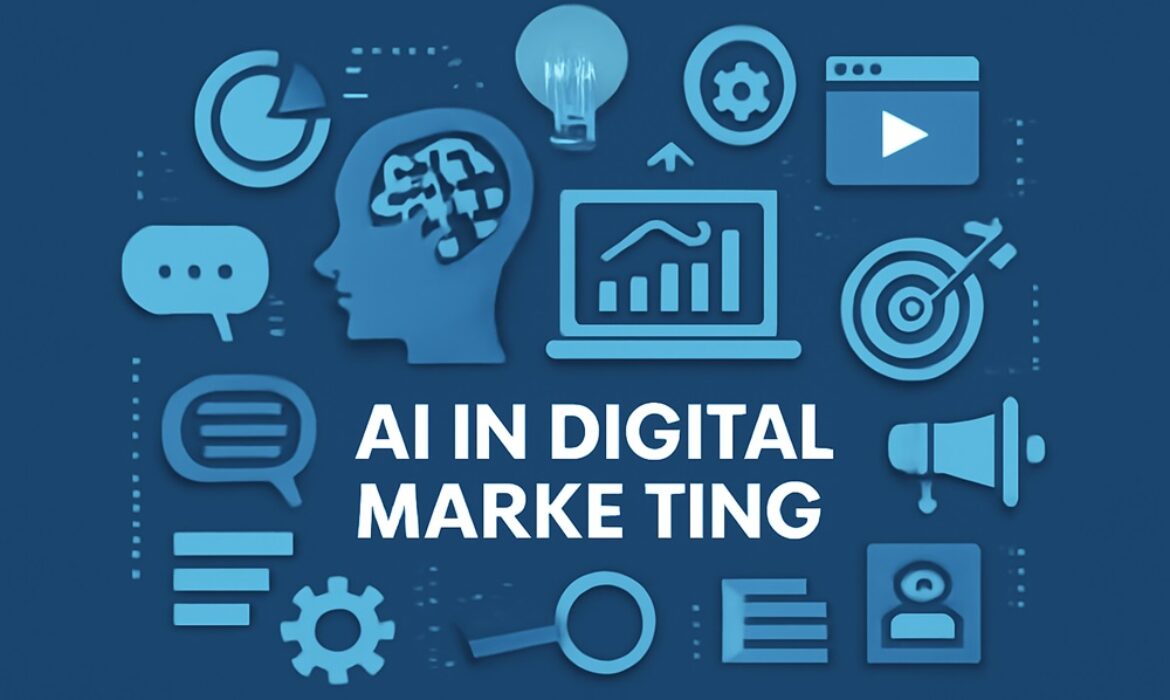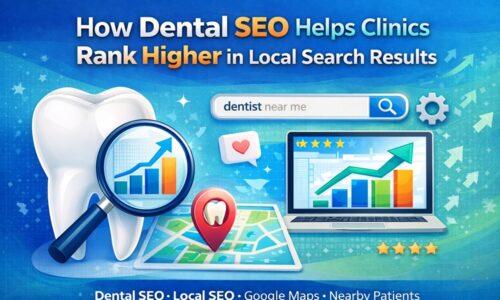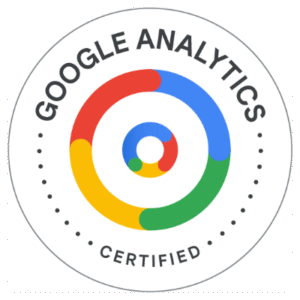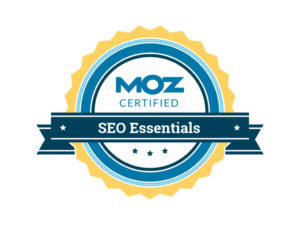Introduction: The Rise of AI in Digital Marketing
In the fast-paced world of digital marketing, the influence of Artificial Intelligence (AI) cannot be overstated. With advancements in AI technology, businesses are now able to automate processes, optimize campaigns, and personalize customer experiences like never before. From AI-powered chatbots to predictive analytics, AI in digital marketing is reshaping how businesses interact with their customers.
As we approach 2025, AI is set to become even more embedded in the digital marketing ecosystem. In this blog, we will explore the various ways AI is changing the landscape of digital marketing, its applications, and how businesses can leverage AI to stay competitive.
1. Personalization at Scale: AI’s Role in Tailoring Customer Experiences
One of the most significant ways AI is changing digital marketing is through personalization. Traditional marketing strategies often deliver the same message to a broad audience, hoping it resonates with as many people as possible. However, with AI, marketers can hyper-personalize their content and offers to meet the individual needs of each customer.
AI in Personalization:
- Data Analysis: AI uses machine learning algorithms to analyze vast amounts of customer data, such as browsing history, purchasing patterns, and social media activity. By understanding customer preferences, AI can create a more personalized experience.
- Dynamic Content: AI can adjust content in real-time based on the user’s behavior. For example, e-commerce websites can show personalized product recommendations based on a customer’s browsing or purchasing history.
- Predictive Analytics: AI-powered predictive analytics can anticipate customer needs and suggest products or services before the customer even asks, creating a more intuitive experience.
In 2025, personalization will be crucial for businesses looking to stay ahead of the competition. AI makes it possible to deliver individualized experiences on a large scale, ensuring that each customer feels understood and valued.
2. Chatbots and Conversational AI: Enhancing Customer Support and Engagement
AI-driven chatbots and conversational agents are revolutionizing customer service in the digital space. With natural language processing (NLP) and machine learning, chatbots are now able to understand and respond to customer inquiries in a more natural and conversational way.
How AI-Powered Chatbots Work:
- Instant Responses: Chatbots can provide instant support, answering frequently asked questions and guiding customers through the buying process 24/7. This eliminates the need for customers to wait for a human representative and reduces the burden on customer service teams.
- Sales Assistance: Chatbots can help customers find the products they need, answer product-related questions, and even process orders, driving conversions and improving customer satisfaction.
- Multilingual Support: Advanced AI-powered chatbots can communicate in multiple languages, breaking down language barriers and expanding businesses’ global reach.
By integrating AI chatbots into their websites and apps, brands can ensure that customers have access to quick, reliable support, leading to improved user engagement and higher conversion rates.
3. AI in Advertising: Smarter Campaigns with Automation
AI is transforming how businesses approach digital advertising. With traditional advertising methods, creating and optimizing campaigns could take hours or even days. However, AI has introduced a new level of automation that allows marketers to run smarter, more efficient campaigns in real-time.
AI-Driven Advertising:
- Programmatic Advertising: AI can automate the buying and placement of ads through programmatic advertising, which uses algorithms to target the right audience at the right time, optimizing ad spend and improving ROI.
- Bidding Optimization: AI tools like Google Ads’ Smart Bidding analyze past performance and user behavior to adjust bidding strategies automatically. This ensures that advertisers get the best value for their budget.
- Dynamic Ad Creation: AI can create personalized ads for different audience segments, adjusting copy, visuals, and offers based on the viewer’s preferences and behaviors.
AI in digital advertising helps businesses save time and resources while maximizing ad performance. With AI tools, brands can target the right audience, optimize ad campaigns, and achieve higher conversions.
4. Content Creation and Curation: AI-Generated Content
Creating high-quality content consistently is one of the biggest challenges in digital marketing. In the past, this required extensive time and effort. However, AI-powered tools are now able to generate content at scale, saving marketers valuable time.
AI in Content Creation:
- Automated Writing: AI content generation tools like GPT-3 can write blog posts, social media captions, and product descriptions based on a few keywords or prompts. These tools can generate human-like content that is relevant and engaging.
- Content Optimization: AI can analyze existing content and suggest improvements to increase readability, SEO performance, and audience engagement.
- Visual Content Generation: AI is also being used to create visual content such as social media images, videos, and infographics. Tools like Canva and Lumen5 leverage AI to generate high-quality visuals quickly.
By automating content creation and curation, businesses can scale their content marketing efforts without compromising on quality. AI-driven tools allow marketers to focus on strategy and creativity while leaving the time-consuming tasks to AI.
5. AI and SEO: Optimizing for Search Engine Rankings
AI is changing the way we approach search engine optimization (SEO). With search engines becoming more sophisticated, especially with the integration of AI into algorithms like Google RankBrain, digital marketers must adapt their SEO strategies to stay competitive.
How AI is Shaping SEO:
- Keyword Research: AI-powered tools like Ahrefs and SEMrush analyze millions of web pages to identify the best keywords to target. These tools provide insights into keyword competition, search volume, and related terms.
- Content Optimization: AI tools can analyze top-performing pages for specific keywords and provide recommendations to improve content, such as adding related keywords, improving readability, or adjusting page structure.
- Voice Search Optimization: With the rise of AI-powered voice assistants, optimizing content for voice search is crucial. AI can help identify conversational keywords and long-tail queries that people use when speaking instead of typing.
AI-driven SEO tools provide marketers with deep insights into search algorithms, helping them create content that ranks higher in search results. By using AI for SEO, businesses can improve visibility, drive more traffic, and stay ahead of the competition.
6. Predictive Analytics: Anticipating Customer Needs
Predictive analytics, powered by AI, is enabling businesses to forecast future customer behavior based on historical data. By predicting what customers will want or need next, businesses can create proactive marketing strategies.
Applications of Predictive Analytics in Marketing:
- Customer Segmentation: AI can segment customers based on past behavior, allowing marketers to target them with relevant offers and messaging.
- Lead Scoring: AI can predict which leads are most likely to convert into customers, helping sales teams prioritize their efforts.
- Churn Prediction: AI can identify customers who are at risk of leaving and allow businesses to take preventive measures, such as personalized offers or retention strategies.
By leveraging predictive analytics, businesses can make smarter decisions and craft more effective marketing strategies that anticipate customer needs, rather than reacting to them.
7. Ethical Considerations in AI Marketing
While AI offers numerous benefits to digital marketing, it also raises ethical concerns. As AI continues to evolve, marketers must be mindful of how they collect, store, and use customer data.
Key Ethical Considerations:
- Data Privacy: Businesses must ensure they are complying with data protection laws like GDPR and CCPA when using AI to collect customer data.
- Bias in AI Algorithms: AI algorithms are only as good as the data they are trained on. Marketers must regularly audit AI systems to ensure they are not biased against certain demographic groups.
- Transparency: Customers should be informed about how their data is being used and how AI is involved in their digital experiences.
Ethical AI practices will be crucial for building customer trust and ensuring that AI’s impact on digital marketing remains positive.
Conclusion: Embracing AI for the Future of Digital Marketing
AI is not just a trend—it’s the future of digital marketing. From personalization and predictive analytics to content creation and advertising automation, AI is helping marketers deliver more efficient, effective, and personalized experiences to customers. As we move forward into 2025, businesses that adopt AI-powered strategies will have a significant competitive advantage.
By embracing AI in digital marketing, businesses can unlock new levels of efficiency, enhance customer engagement, and drive growth. However, it’s crucial to use AI responsibly and ethically, ensuring that customers’ data and privacy are respected.
The future is here, and AI is leading the way.















